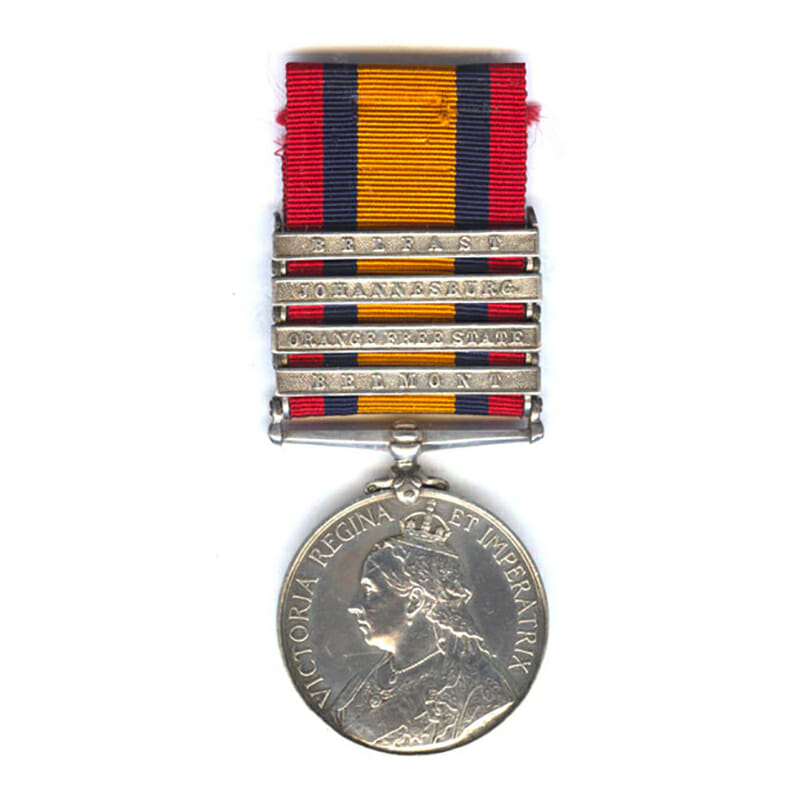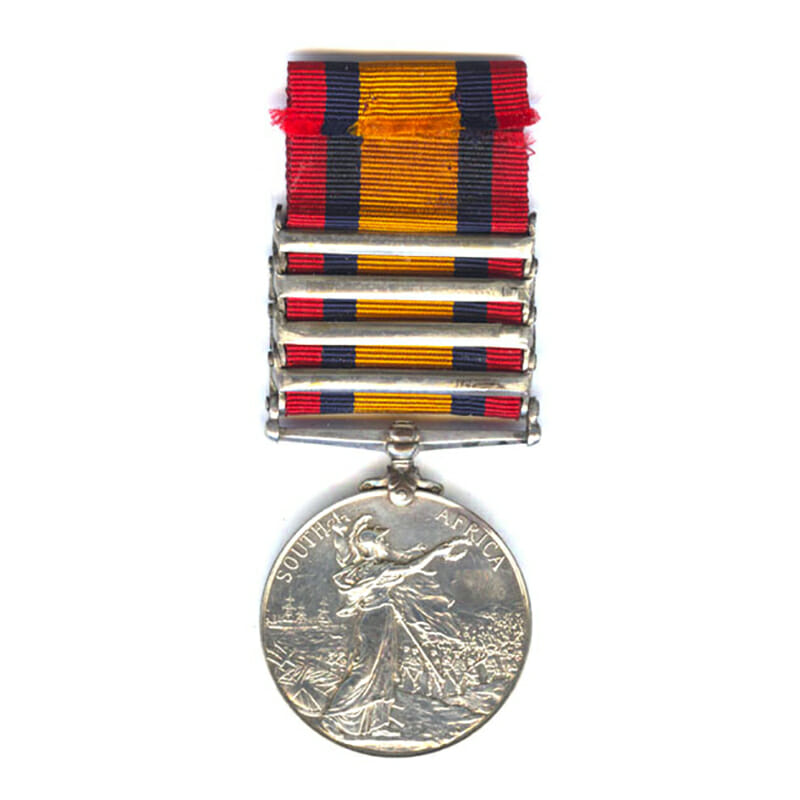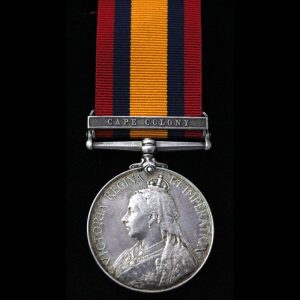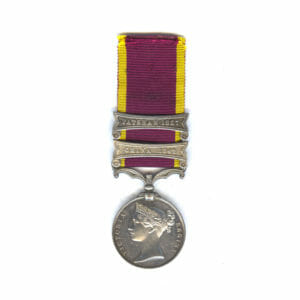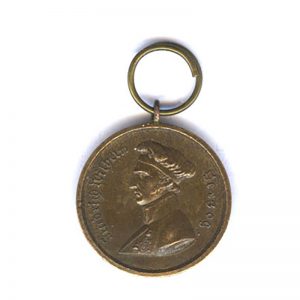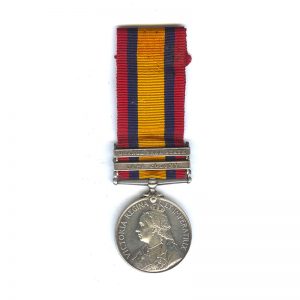Description
Queen’s South Africa, 4 bars, Belmont, Orange Free State, Johannesburg Belfast, 123 Pte. F. Smith, Coldstream Guards, wounded in action at Belmont on 23rd November 1899.
A note with the medal describes his wound as “GSW Throat Severe”
At the battle the 1st Battalion Coldstream Guards lost 7 men killed and 20 men wounded in action (including Pte Smith).
Fred Smith was born in Monk Bretton, Barnsley, Yorkshire, having been a Blacksmith’s Striker he joined the Coldstream Guards at the age of 19 on 12th June 1895.
He arrived in South Africa with the 2nd Battalion on 28th October 1899, only a month later in his first battle at Belmont, he was wounded in action, at first the 2 Coldstream Battalions of the Guards Brigade were in reserve to the right of the forward line, at 5.45 am the British had resumed their advance on the Boer positions, the Coldstreams then moved further to the right and then stormed the Boer positions on Razor Back and Sugar Loaf Hills, some companies of Coldstreamers put in an attack on the extreme left of the line.
Unfortunately for the advancing British infantry, as soon as they reached the Boers they would hop on their ponies and ride away to another hill, eventually retreating to Graspan where the next day the Battle of Graspan would begin. Total casualties to the British Force were 75 Officers & Men killed, with 223 wounded.
He continued his service and was engaged in the Operations in the Orange Free State, at Johannesburg & finally at the Battle of Bergendal (Belfast), he also earned the King’s South Africa medal with 2 bars.
He ended his service in the Boer War on 4th October 1902 returning home, only after spending 42 days locked up for sleeping at his post by R.C.M.
After finishing his 12 year period of engagement he was discharged on 11th June 1907.
With copy service papers
